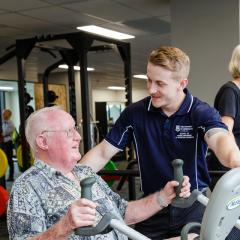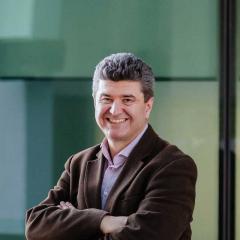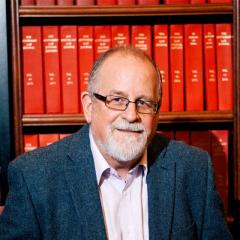Turkish researchers have become the first to show that The University of Queensland’s Triple P – Positive Parenting Program can successfully target and treat clinical levels of anxiety in children.
Triple P is one of the world’s most extensively researched parenting interventions and is estimated to have reached millions of families.
However, much of the previous research of the past three decades has focused on prevention and treatment of early onset mental health problems in children such as disruptive behaviour problems.
“Traditionally treatments for anxiety and depressive disorders have focused on the individual child and it’s only been in recent years that research has focused on what role parents can have,’’ program founder and director of UQ’s Parenting and Family Support Centre, Professor Matt Sanders, said.
Anxiety is one of the most common mental health problems in adulthood and the second most common mental health disorder experienced by children and adolescents in Australia after ADHD. An estimated 6.9 per cent children and adolescents are estimated to be affected, latest government surveys suggest.
In their paper published in the Journal of Child and Family Studies, the Turkish authors point out that studies of humans as well as primates have shown that anxious children – or offspring – are particularly sensitive to the impacts of parenting, citing a study by Suomi (1997).
Parents who use harsh punishment, shouting and anger were likely to produce fear reactions in children, the authors, led by Gonca Özyurt, of the Child and Adolescent Psychiatry Clinic, in Nevsehir State Hospital, write.
Other parental factors such as anxious modelling, an over-controlling parenting style, ineffective disciplinary methods and child vulnerability factors such as their temperament, the way they think, and their age can also contribute to the likelihood of a child developing anxiety problems.
The children who participated in the Turkish study were on a waiting list at the Child and Adolescent Department outpatient unit at the School of Medicine in Dokuz Eylul University and were evaluated to have an anxiety disorder according by a child psychiatrist.
“We aimed to evaluate the effectiveness of Triple P on childhood anxiety disorders and to assess its effects on behavioural and emotional problems, general anxiety level, severity of the disorder and general psychosocial functioning,’’ the authors write.
They also looked at the effects of the program on anxiety and psychological well-being of the parents.
This was a randomised controlled trial with parents of the Triple P group participating in Group Triple P for eight weeks, with the two groups compared just before and four months after the intervention.
Turkish-speaking practitioners were trained in the delivery of the program by UQ Associate Professor Alan Ralph and the program was delivered with Turkish-translated resources.
The authors conclude that “children’s anxiety level and severity of the disorder significantly decreased and the child’s functionality significantly improved with applying Triple P to children’s parents’’.
Although limited because of the size of the study (50 parents), they concluded that Triple P may be an effective and useful method of treatment for children and adolescents who have anxiety symptoms or anxiety disorders.
Words: Paddy Hintz



